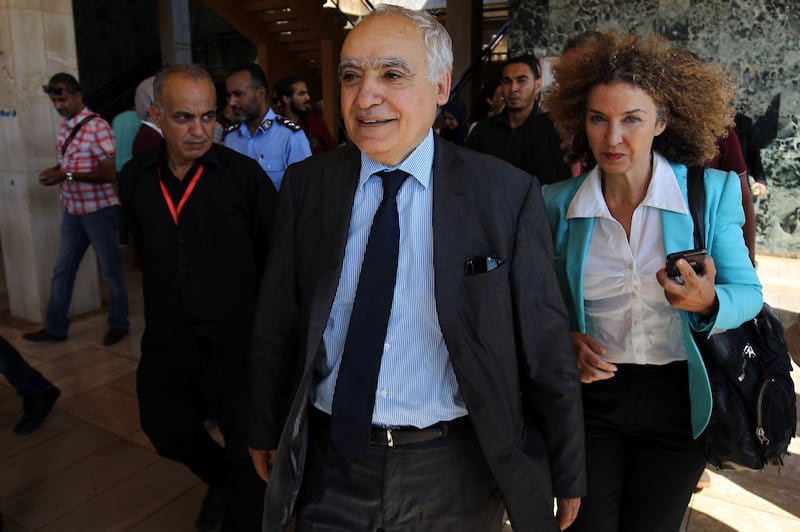Ghassan Salame, the United Nations Special Representative and Head of the United Nations Support Mission in Libya (UNSMIL), has announced a high level meeting chaired by UN secretary-general Antonio Guterres will take place next month following talks that Mr Salame is holding in the country this week
Mr Salame who took up his position last month, made the announcement from Tripoli where he held a tele-briefing with the Security Council from the UN headquarters there, highlighting his on-the-ground approach to fostering mediation between the parties. The UN envoy revealed that Mr Guterres plans to convene a high-level meeting on Libya next month in New York, where an action plan will be presented to resolve the conflict.
The gathering “will occur on the margins of the United Nations General Assembly meeting” said Mr Salame. He will be meeting with different Libyan factions while in the country before giving out any details on the meeting.
“I wouldn’t have assumed this role if I did not believe that a peaceful and positive end to the Libyan crisis was possible,” Mr Salameh told the security council.
Mr Salame emphasised how important it was to get the economy running, saying Libyans are tired of the endless cuts in electricity and water, high petrol prices, low wages and the long queues at the the banks. “Libyans cannot understand being poor in a country that is so rich with natural resources” he said. “If we don’t address the economic challenges, the humanitarian ones will only get worse.”
He referred to a new constitution and calls for elections but warned the political conditions have to be right first. “Sequencing is the name of the game” he said..
Mr Salame also blamed outside groups for some of Libya’s problems. “ISIL, terrorist organizations tied to Al-Qaeda, mercenaries, arms dealings and the black market are all transnational challenges” he said, but working with Libya’s neighbours - including Egypt, Tunisia and Algeria — was essential to reach “a possible peaceful end for the Libyan crisis.”






